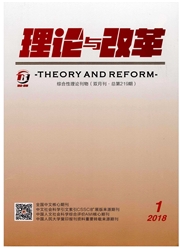

 中文摘要:
中文摘要:
科斯定理的多种解读都表明交易费用概念表面上具有合作的形式,但缺少分配的属性。从而导致在使用交易费用概念分析产权改革具有了片面性和内在矛盾冲突:如果交易成本太高,包括既得利益集团的阻碍、集体行动的搭便车问题等,则新的更有效的制度创新难以出现。如果交易成本太低,则承诺的不可置信会激励更多的利益集团将生产性资源投入到重新变革分配性制度的活动中,从而减少社会生产,降低经济效率。所以,国有企业的产权改革既要解决利益冲突,也要避免国家机会主义。
 英文摘要:
英文摘要:
This paper compares various opinions on transaction costs and Coase Theorem. It indicates that the concept of TC has a form of cooperation, but in the lack of application of distribution. With time dimension, the paradox of TC appears in the analysis on property right reform. If transaction costs, including opposition of interest group and the free-rider problems of collective action, are too high, the more effective institutional innovation is difficult to be brought out. If transaction costs are too low, the incredible commitment inspires interest groups to put productive resources to change distributional institution, which wilt reduce economic efficiency.
 同期刊论文项目
同期刊论文项目
 同项目期刊论文
同项目期刊论文
 期刊信息
期刊信息
